Written by Warren Darrell and Sarah Hecocks
On October 15, 2024, North Carolina Coastal Federation interns and volunteers worked with The Nature Conservancy (TNC) and the NC Wildlife Resources Commission (WRC) to restore the forest on the Angola Bay Game Land in Pender County, NC.
Prior to timber harvesting in recent centuries, the area which is now the Angola Bay Game Land consisted of deep, moist peat soils, upon which grew a diverse species-rich forest, which absorbed atmospheric carbon dioxide (CO2), with the peat soils storing carbon in the form of slowly decaying plant material. Peat soils mitigate anthropogenic climate change by functioning as a globally significant carbon storage “sink”.
In the latter 1900s, TNC acquired 7500 acres of Angola Bay Game Land that had been ditched and drained to support loblolly pine timber production. This land was transferred to the WRC, with the intention of restoring the natural hydrology and biological community. The drained soil had dried, and lost much of its carbon storage capacity, with some soil carbon reacting with atmospheric oxygen to produce CO2. Thus, the land was converted from an absorbing “sink” to a CO2-emitting “source”, contributing to climate change. Additionally, the planted pine plantations were less species-diverse than the pre-existing natural forest.
During 2022-2024, TNC and WRC installed water control structures to retain water within the soil, and prepared the land, now cleared of loblolly pine, for planting with native Buttonbush, Pond and Bald Cypress, and Atlantic White Cedar (AWC). Throughout the U.S. Atlantic Coastal Plain, ecologically valuable AWC has been reduced to about 5 percent of its original range. The project goal is to restore biological diversity and the CO2 sink while maintaining access for forest management, seasonal hunting, and other recreation. In addition, the restored forest and soil water storage capacity will reduce downstream flooding and improve the water quality of the NE Cape Fear River. The restored forest will not be harvested for timber.
With TNC and WRC using global positioning systems to locate the center of each planting area, Coastal Federation interns and volunteers Brynn, Ramie, Hailey, Ken, and Warren carried and hammered in stakes throughout 580 acres upon which AWC seedlings will be planted 8 feet apart, in squares of 49 trees each, with the centers of planting patterns 144 feet apart. This arrangement is expected to be conducive to natural forest regeneration and wildlife colonization.
The former pine stands are crisscrossed with ditches and had been recently clear-cut to prepare for the native plantings, leaving slash (left-over tree parts) on the ground, making for rough terrain. However, by day’s end, the planting plan stakeout was completed. The Coastal Federation volunteers and the interns, who are completing education and starting careers in nature conservation, contributed “boots on the ground” work, and commented:
“Terrain was difficult …hard work… GPS worked well … knowledgeable and dedicated people from the various organizations… fun… learned about the North Carolina coastal plain environment…a fulfilling educational experience restoring and protecting the Atlantic Coastal Plain forests.”
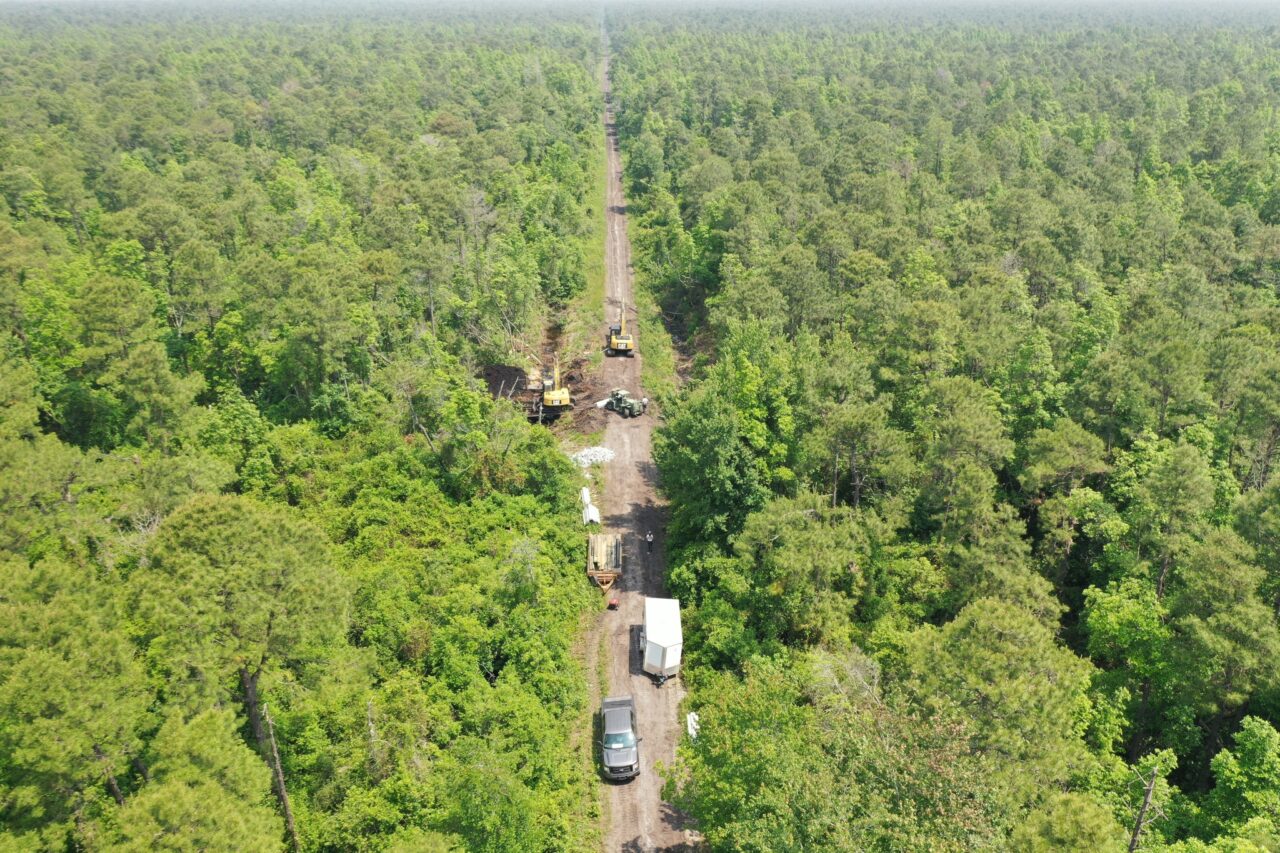
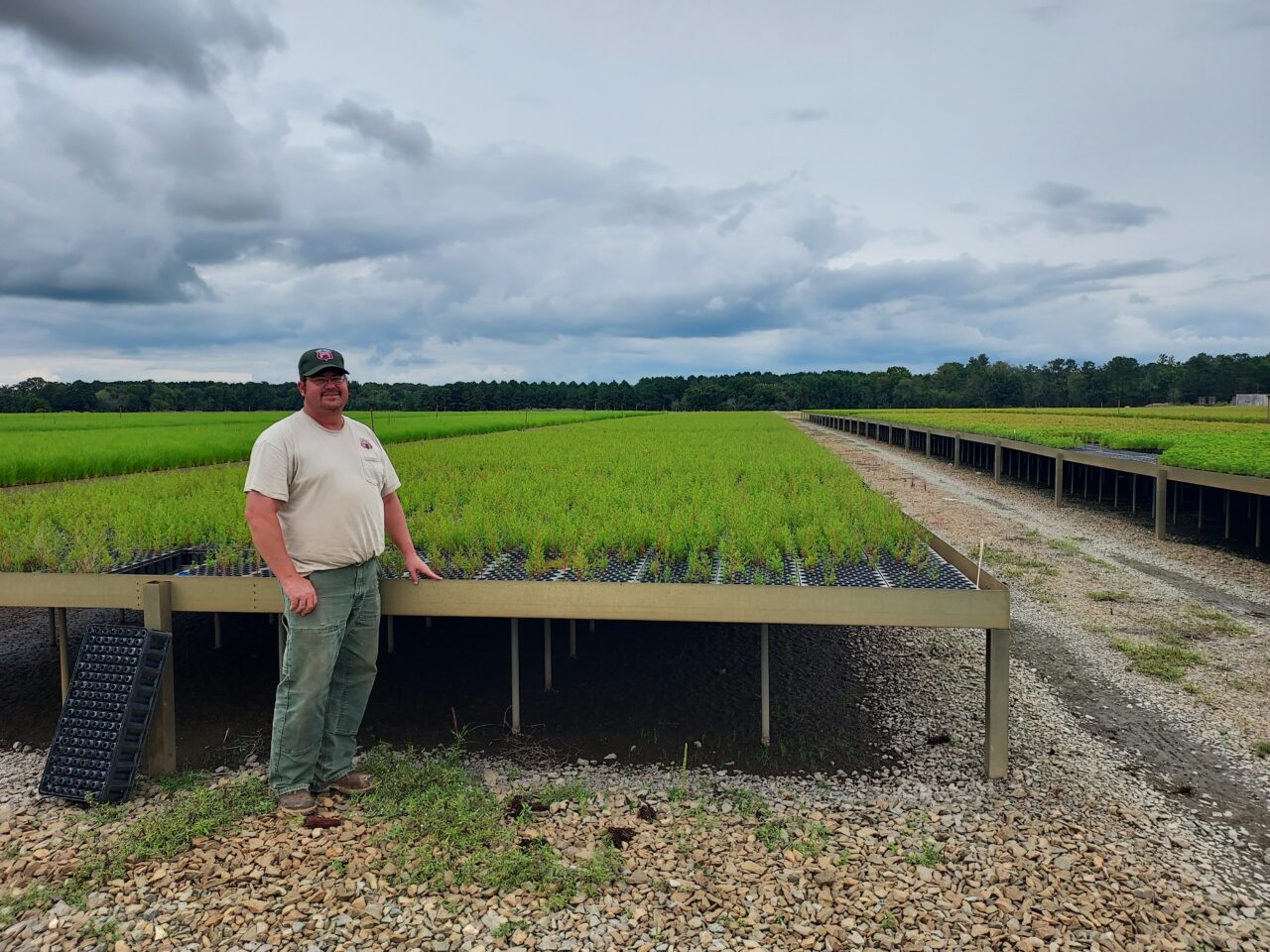
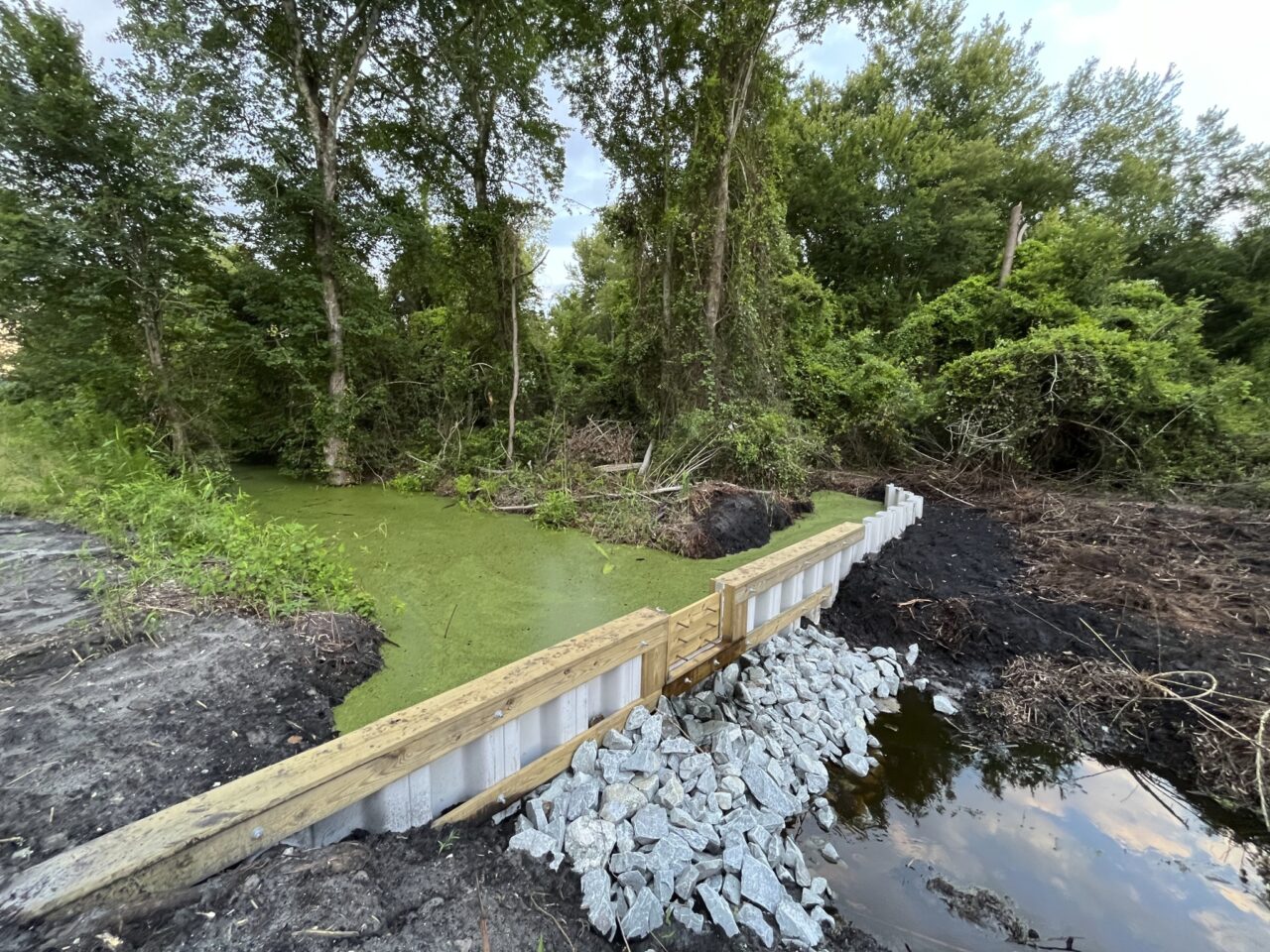
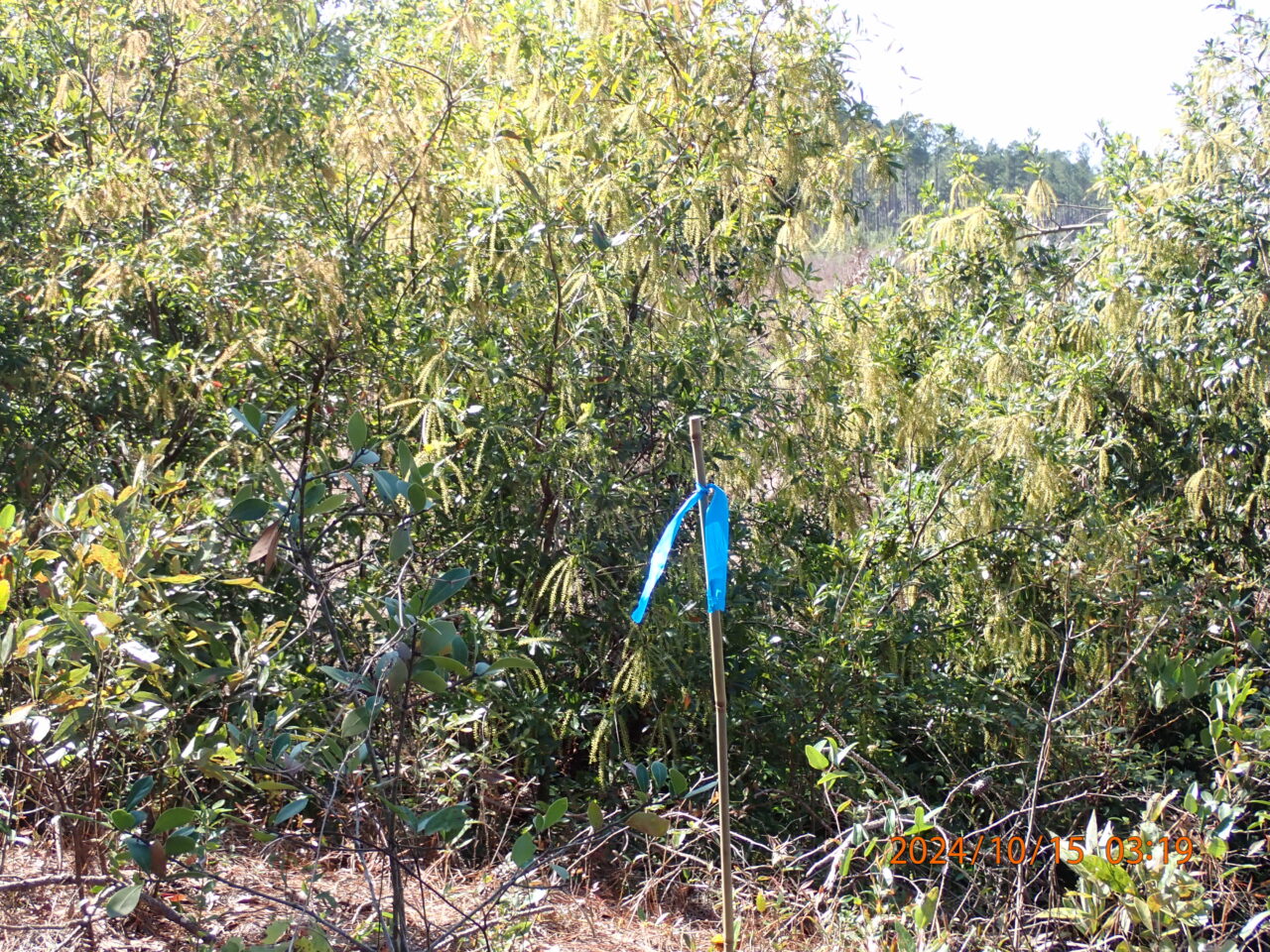
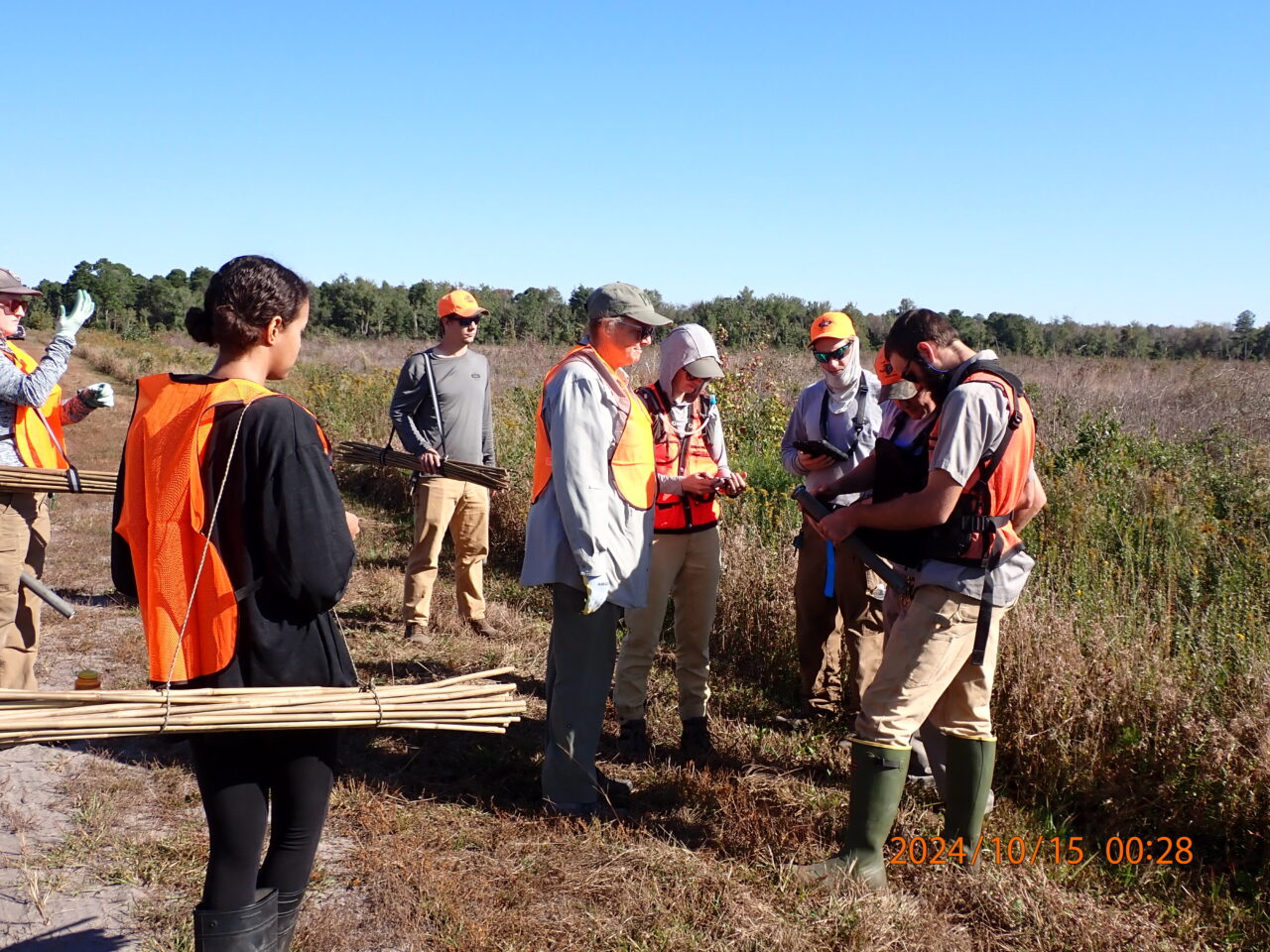


Warren Darrell is a North Carolina Coastal Federation volunteer Ambassador, and Sarah Hecocks is a Southeast Wetland Restoration Practitioner with The Nature Conservancy

